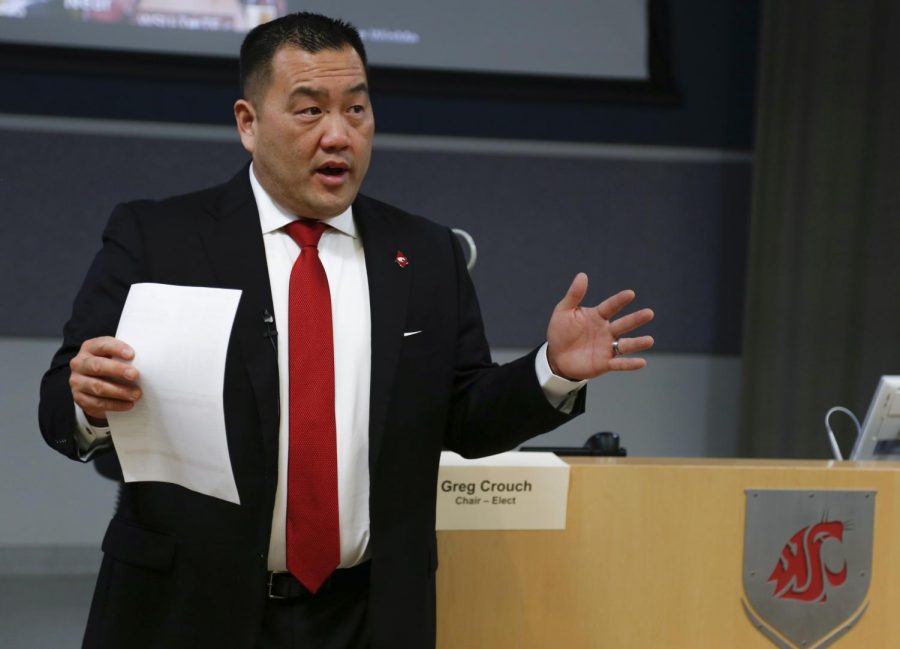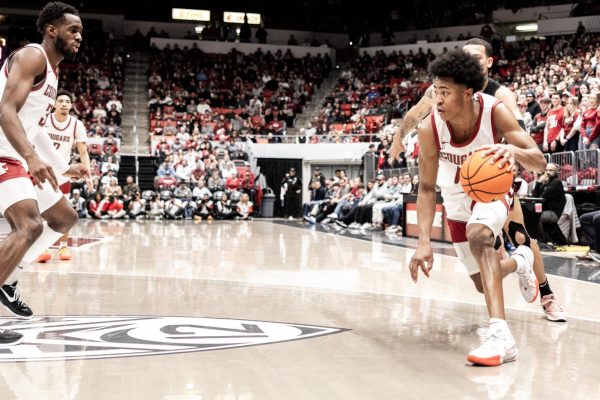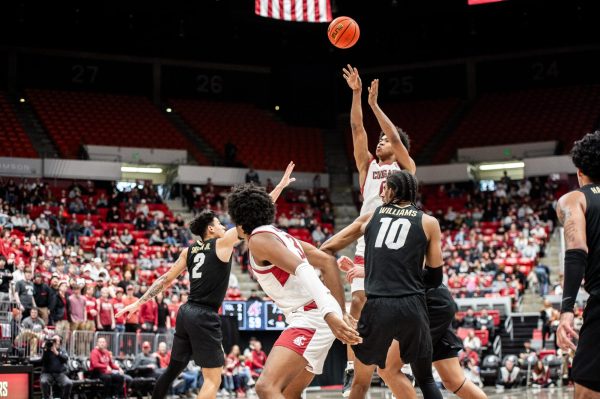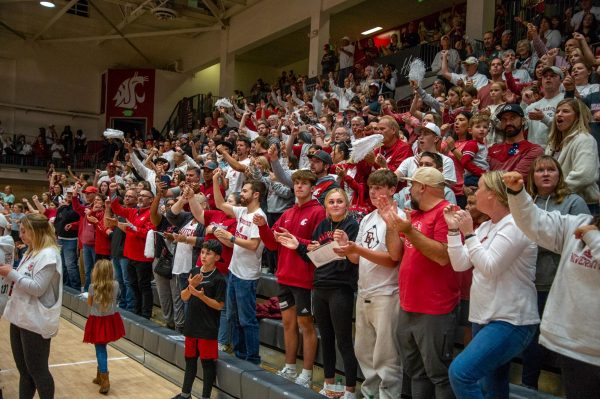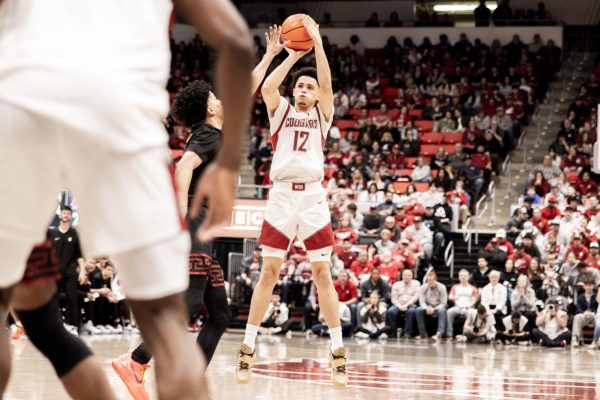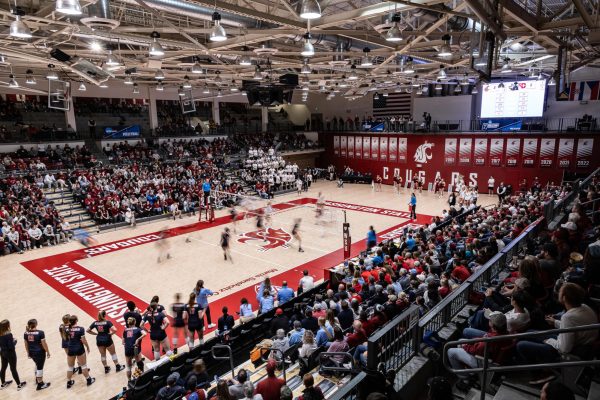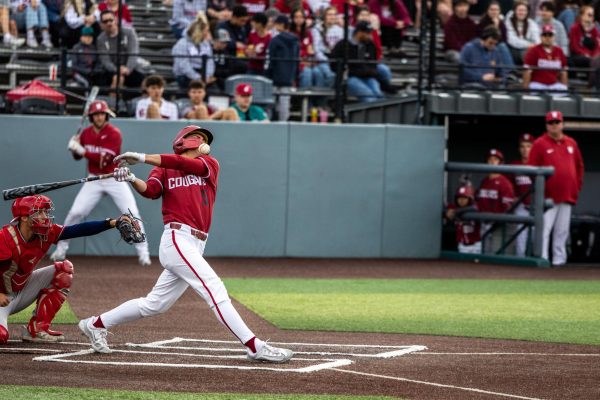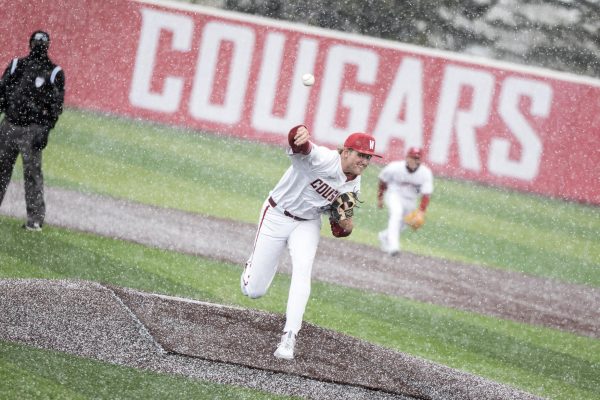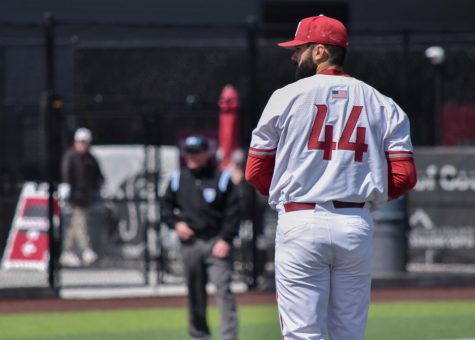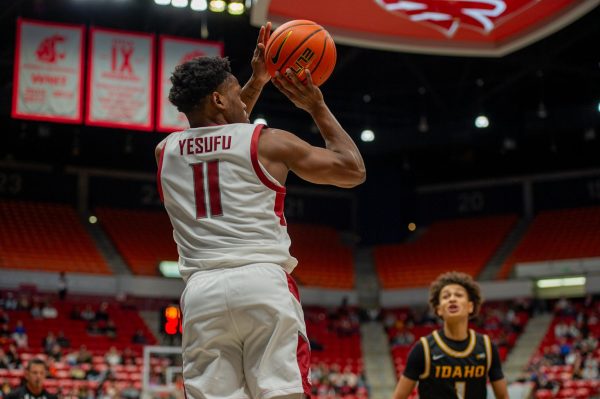WSU Athletic Director Pat Chun testifies before Congress
AD warned Congress about the dangers of leaving NIL uncapped
ZACH RUBIO | DAILY EVERGREEN FILE
After six year at WSU, Pat Chun leaves Pullman for Seattle, AD job at Washington.
April 6, 2023
Pat Chun, WSU director of athletics, spoke before a House subcommittee in Washington D.C. to ask them to partner with the NCAA to develop federal standards for monetizing their name, image and likeness.
With how NIL has been implemented, the lack of regulations has caused confusion and problematic deals. Boosters of schools allegedly paid $30 million to recruits to entice athletes to sign with Texas A&M, according to College Athlete Insight.
Another example of boosters having a negative impact was the recruitment of twins Haley and Hanna Cavinder to Miami. The twins had a meal with a booster during their recruitment that broke NIL violations, which led to infractions from the NCAA. Still, the same booster said that decision would not impact his NIL business, according to Sports Illustrated.
The infractions placed on Miami women’s basketball, per SI:
- A one-year probation, which could result in more severe sanctions if the program violates rules during that time.
- A $5,000 fine plus 1% of the women’s basketball budget.
- A 7% reduction in the number of official visits during the 2022–23 academic year.
- A reduction of nine recruiting days in 2022–23.
- A three-week probation on recruiting communications by staff members starting with the opening of the transfer portal on March 13.
“The current NIL chaos means student-athletes are left to fend for themselves and those at the top of their game must figure out how to maneuver through a multitude of agents, collectives, and high-dollar contract offers — all while maintaining their academic and athletic commitments,” Eastern Washington Congresswoman Cathy McMorris Rodgers said.
Chun said that the NCAA completely supports legitimate and real NIL deals. Still, without regulations and with how new it is, one NFL agent said that unqualified people and entities have already begun taking advantage of athletes.
Rodgers said that there needs to be clear rules and guidelines on a national level to allow athletes to be able to flourish in their academics and athletics without worrying about confusing and tough navigation of NIL.
WSU has advisors to help their student-athletes navigate the NIL world as Nick Garner, director of student-athlete innovation at WSU, works directly with the athletes to give advice.
Still, the existing environment consists of recruiting inducements, tampering and ultimately pay-for-play, and is wrought with pitfalls and misinformation, Chun said.
“Only with accurate and required transactional information can student-athletes ensure they are not being taken advantage of by bad actors giving false promises. By shielding information, third parties have profited from the uninformed decisions of student-athletes,” he said.
Chun assured that he and WSU President Kirk Schulz are committed to being a part of the solution for a better and clearer future for student-athletes and NIL deals and asked for the Congress to partner up with the NCAA.
“We respectfully ask Congress to partner with the NCAA and our member eight institutions to develop federal standards that provide transparency and enforceable safeguards to mitigate the negative impact of the existing NIL environment,” he said.
Not acknowledged by Chun in Congress is the disproportionate amount of money spent between men’s and women’s sports, a potentially harmful workaround of Title IX by NIL.
While more women’s sports crack the top 10 of made money in college sports, men’s football and basketball made up nearly 60% of NIL deals as of September 2022, according to CNBC.
As well as that, only a single woman makes the list of top-10 highest individual earnings from NIL, that being LSU gymnast Olivia Dunne, according to Outkick.
Disproportionate spending is not just a NIL problem, as in 2021 it was reported that the NCAA spent $4,285 per men’s participant versus $2,588 per women’s participant in that year’s March Madness, according to ESPN.

